I had always wanted to meet Julian Bond. He had been a hero of mine since growing up in the sixties. He was a strong, articulate voice for fairness and voting rights, and just plain common sense when it came to the notion of governing. When I photographed him not too long ago, he seemed the picture of health. Now, suddenly, he’s gone. He will be missed.
Photographers are in the memory business and our daily chore is to create visuals that reverberate, commemorate, or somehow creep into the ongoing consciousness of somebody, somewhere. If we’re successful, every once in a while we make a picture, or set of pictures, that becomes the stuff of memory, maybe even for more than a few. Those are good days, when pictures like that are shot. Most days though, we are making pictures that turn a key, fill a hole, service a need, make somebody look nice, or sell a product.
There’s nothing wrong with that, of course. Those kinds of pictures certainly are part of making a living, and many of those disappear as fast as they were shot. We don’t hang our emotional hat on everything we shoot. But some do linger. Some stick with you.
Magnum photographer Danny Lyon shot a set of pictures that stuck with me for many years. In 1971 he published a book called Conversations with the Dead, about the Texas State Penitentiary system. It was a simple, brutally effective compilation of images and interviews. He was also, somewhat loosely, a “staff photographer” for SNCC, the Student Non-Violent Coordinating Committee, often referred to as “snick.” Julian Bond was very active with the committee.
As Mr. Bond is quoted, referencing SNCC, “A final SNCC legacy is the destruction of the psychological shackles which had kept black southerners in physical and mental peonage; SNCC helped break those chains forever. It demonstrated that ordinary women and men, young and old, could perform extraordinary tasks.”
Julian and Danny became friends.
Many years later, in 2014, they were onstage together at a National Geographic Seminar, reminiscing publicly about that time and the images that were made. Danny was the more raucous participant. Mr. Bond was his usual erudite, quietly spoken self. I made a point of going to the seminar that year to get Danny’s autograph on my dog eared, ancient copy of his prison book. I walked out of there impressed all over again with Julian Bond’s elegant intelligence. I became determined to photograph him.
I had the perfect vehicle. I had already started shooting a project for LIFE books on the Vietnam War, photographing those who fought in it, and those who protested our involvement. Julian Bond loomed large during this tumultuous time. Via friend and NGS editor Elizabeth Krist, I sent Mr. Bond an email. He immediately replied in the affirmative. He would agree to be part of the LIFE project. We set a date.
It was a typical assignment in certain ways, in that it was all too brief. He had a window, about 2 hours, and during that time we photographed both at his home, and at the Vietnam Wall Memorial. We talked a bit, and he showed me historical artifacts in his office. I mentioned that I was an admirer, and back when he was nominated for vice-president in 1968, I thought he should have been nominated for president. He smiled warmly and said, “So did I, Joe.” He commented dryly on the initial stirrings of the current presidential fracas, now of course in full roar. It was smart, observant, and funny. I could have listened to him a long time. Sadly, now, that voice has been stilled.
The life and times you lead as a photographer are of course punctuated with visuals–your own, and many others. Important pictures have long echoes in the heart and mind. The tumult of the 60’s left me with many pictures in my head, and memories of people, such as Julian Bond. When I began my path as a photographer, early influences, such as a powerful book like Conversations, made me realize the power of a photograph to shock, inform and perforce, to linger in the mind and heart.
I’m glad for that. Without those lingering influences and memories, I might never have gone to listen to Julian and Danny ramble through their times together. That day prompted me to thinking, and those thoughts became some pictures.
I only spent a short time with Julian Bond, and made a small number of pictures. But they will stay with me.
More tk…..
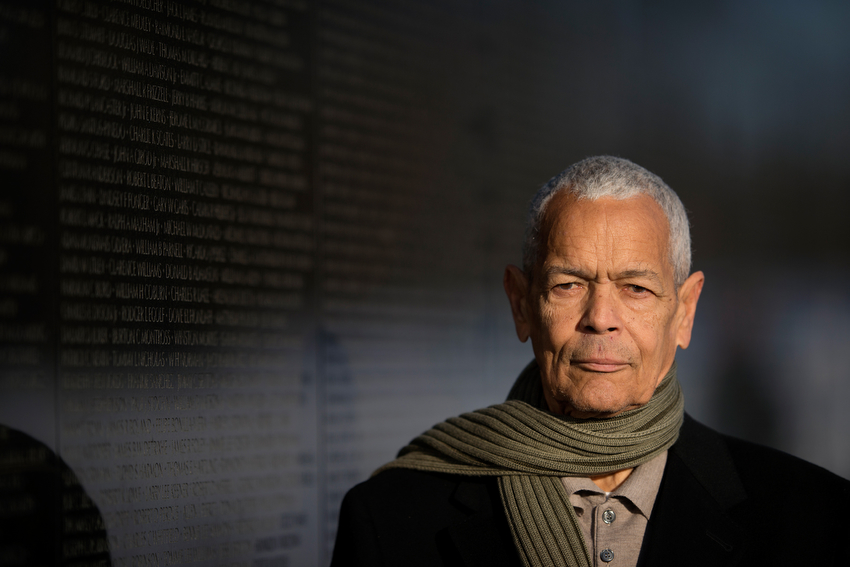
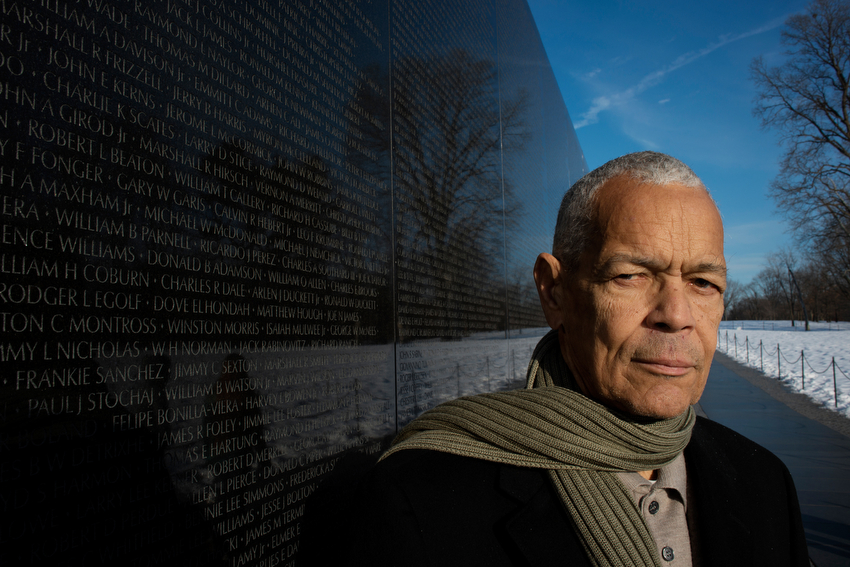

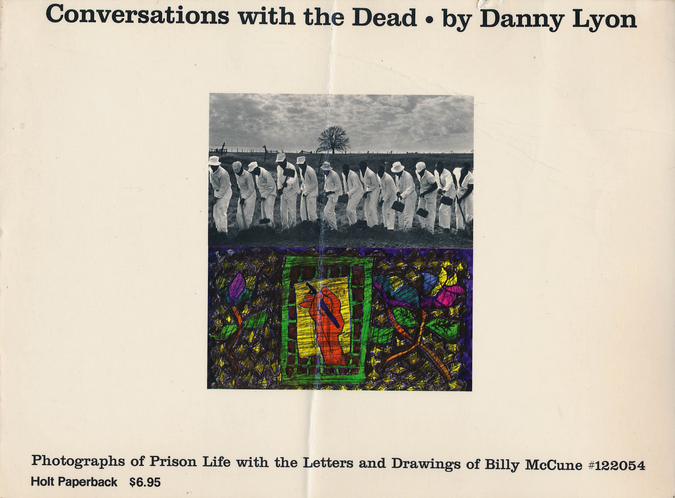
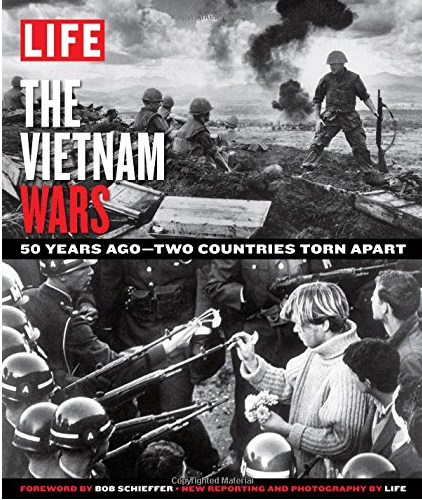
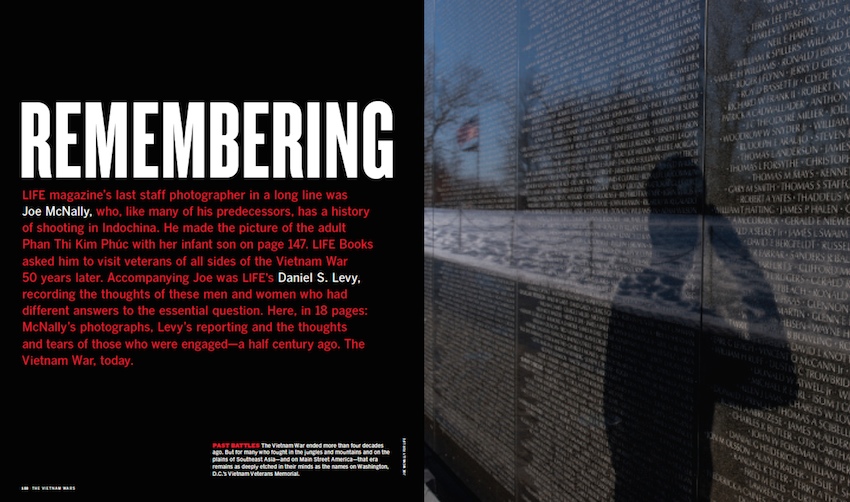
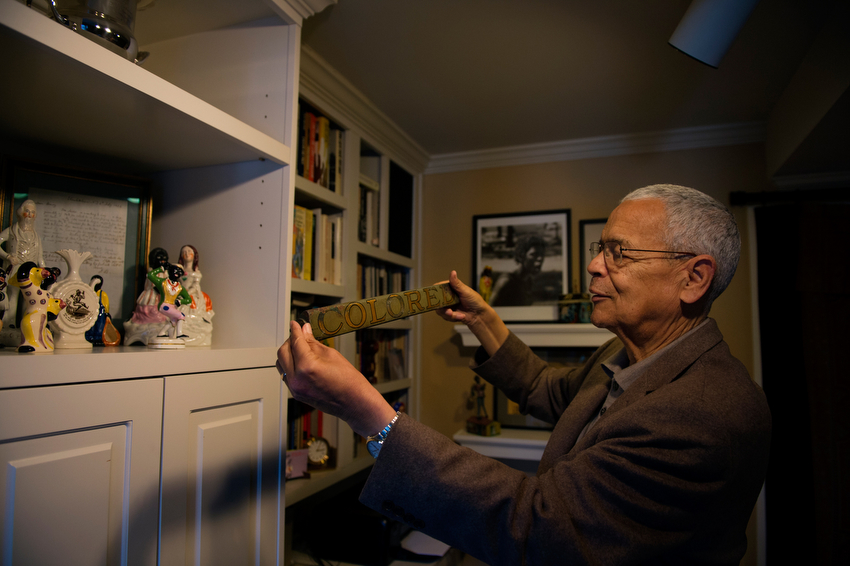
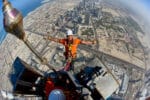
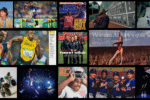
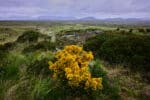
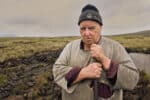
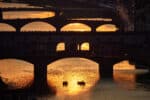
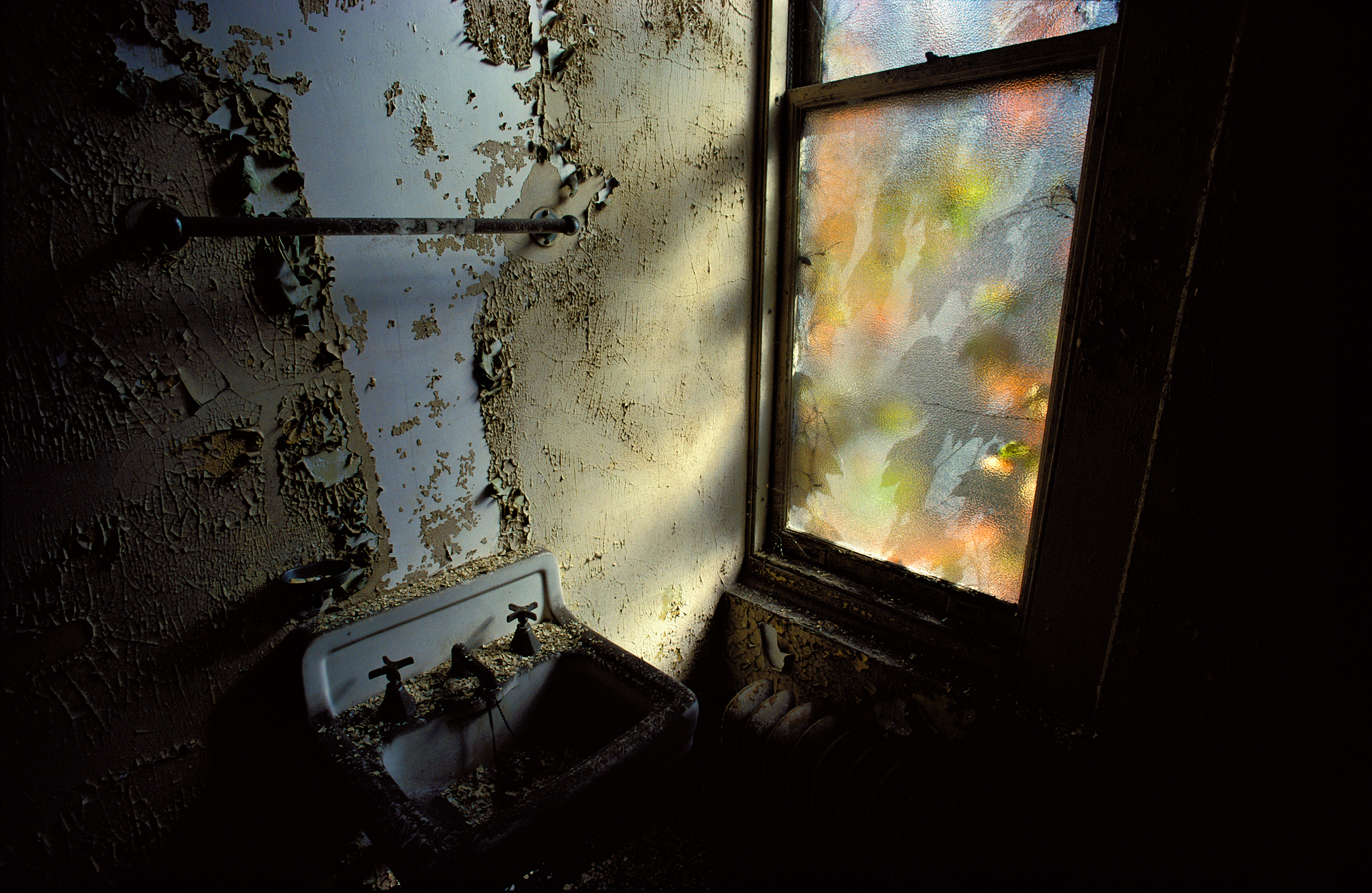

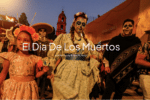

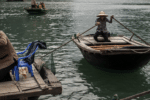
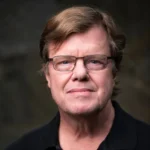


Well said Joe. You write very well.
Joe,
Small things beget great things, and time and circumstance call to put imagination to work through a camera’s lens. The glass and steel is not the instrument of the journey, but our heart is.
When true communication happens, it triggers action and in your case, transformation with inspiration of information. It isn’t the gear, it is the people you encounter and the hearts you touch when you allow your own to be affected by what you experience.
Thanks for baring the inner part of what makes you, you. The blessing isn’t just in the experience, but in the sharing. You look through a lens to the world, I see into your soul through that lens. I appreciate that communication.
Joe:
Wonderful images. Julian Bond was a statesman. We are severely lacking in that category today. The Vietnam Memorial is such a moving monument. He will be missed, but we have images like this that keep his memory.
All the best.
Bill Bogle, Jr.
Great series of portraits, and another fabulous blog post.
Thanks, Joe. And sorry for your loss.
~fotodog
Very touching and sincere note, Joe. This is an insight into the wonderful person you are.
Joe,
and now they will stay with each of us. thank you for the elegant words and photographs.
Joe,
Your words and tributes are just as eloquent and powerful as your photographs.
Joe,
There are times, many times actually, that your words shed as much light on a subject as your photography. Never a full blown spot light just enough to reveal the message / subject …and leave me looking for more. This is truly one of those times.
Thank you.
John
Absolutely right, Bill. You typically hit the nail on the head. He was a statesman, a skill which necessarily has a component of civility fully integrated into it. We are seemingly lacking this nowadays in the political arena. Mr. Bond had the capability of stating a case, and being reasonable about the process. all best, Joe
Joe,
I am a sincere admirer of your photographic work. I have read your books and watched you DVDs endlessly. Your writing, as evidenced in this post illuminates the essence of your relationship with Julian Bond almost as much as your photographs do. Perhaps those days as a copy boy at the NY Daily News didn’t go without benefit. Thank you for writing this post.
Yours Sincerely,
RLF
Joe,
As you have time and time again, you have taken a small collection of photos and put them with a few well chosen words, and sparked an interest for me to research Mr. Bond. My history teachers did not mention him when I was in school (I guess that is public education at it’s finest). Now that I know his name, I can scour the web and be just that much more informed and educated. You are a good influence Mr. Joe.
Thanks
VG
Thank you for posting this. As a young high school newspaper photographer, In 1984, I had the rare opportunity to ride in a lemozine and photograph Mr Bond when he was on the campaign trail with Geraldine Ferraro. Shooting inside a moving lemozine at night was, “an education,” but nothing compared to the brief conversation the elder statesman took the time to have with a group of high school juniors that really had no clue about the world of politics and the direct effect that world has on their daily lives.
Rest in peace, Mr Bond.
Joe,
As many others have already remarked, you are a wonderful writer. I am so glad that technology has provided you with a platform to share with us both your images and your prose. The marriage of of the two is a powerful thing.
Thanks,
Doc
Things that stay with you …
I’ve only met Mr. Bond once, a few months ago in Sing Sing prison in NY. He was the keynote speaker for inmates graduating from Mercy college, in a program run by Hudson Link.
Usually when I shoot events, I am on some kind of autopilot. But I was stopped dead in my tracks by his opening line “My grandfather was born a slave …” I paused, wiped a tear my from my eye, and continued shooting.
He was a great and courageous man.
See http://on.wsj.com/1cLFtt9
Andrew
Great thoughts and photos Joe!
So true what you say, that as photographers our daily job is to, “create visuals that reverberate, create, or somehow creep into the ongoing consciousness of somebody, somewhere.” As a photographer, there is nothing more rewarding for me than when I realize I have shot an image that will stand the test of time–one that I feel, as you so eloquently say, that will reverberate into the ongoing cousciousness of somebody. Incidentally, it’s been my pleasure to photograph Vernon Jordan a few times over the years and I feel very nearly the same about Vernon as you feel about Julian Bond. I hope we have many more years ahead to share and enjoy Vernon, however. Nicely said, Joe.
Many thanks Larry…..all the best…